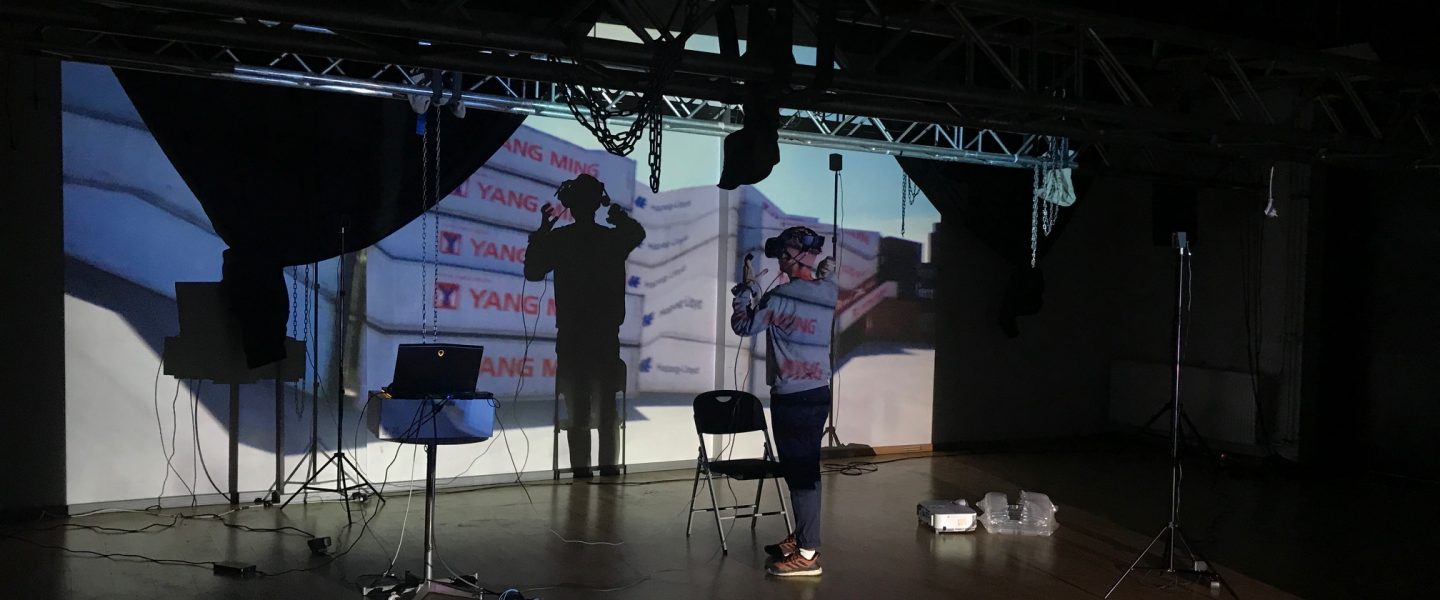Research and Development

Testing the interaction between virtual space and its user - examining Harles Neljand's work (photo: Johanna Jõekalda 2018)
Interactive spaces are difficult to imagine and design due to their large amount of variables. The possibility to test interactive design solutions on 1:1 scale from first person view is an important advantage of virtual reality techniques for architects and designers.
Applying biometric data in interactive design solutions:
Experience-oriented interaction was the main research theme of the virtual reality lab over the period of 2017-2022. We were using biometric sensors to measure the effect space has on users’ activity-passivity and positivity-negativity levels. We were detecting patterns in the reactions evoked by spatial stimuli. We were making spatial parameters respond to emotional feedback. The main output of the research was prototypes of interactive spaces programmed to change their parameters in order to stimulate users’ emotional states. The amplitudes and the adaption logics of such emotion-based interaction are defined by the designer or the architect, while in real time the space is controlled by the user. Bringing together emotion detection and virtual reality techniques, we could test experience-charged spaces that recognize its inhabitants’ reactions and adapt accordingly. This research helped to give students valuable knowhow about the principles of experience-oriented interaction design.
The research was led by Johanna Jõekalda.


